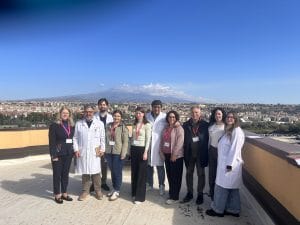The Lancet Oncology published in August an article which clarified the positions of CoEHAR leaders on some unfounded news spread in recent months.
In June, Lancet has published an article about the conflict of interests in tobacco science that was largely inaccurate and defamatory.
It targeted some CoEHAR researchers with ad hominem accusations, claiming undisclosed links with the tobacco harm reduction industry and even discredits the Center itself including and its international network by making unfounded and false allegations.
Riccardo Polosa, founder of CoEHAR, and Giovanni Li Volti, director of CoEHAR intimated The Lancet Oncology that the article was potentially reputation damaging and it exhibited several ethics violations, including falsehoods by the author and the elementary journalistic precaution to seek the centre response before publication.
In the end, this is the reply which was ultimately approved by the Editor-in-Chief and published some days ago in The Lancet Oncology:
https://www.sciencedirect.com/science/article/pii/S1470204521004770?via%3Dihub
The reply sets the record straight. In particular, three points are clarified:
- Researchers accused have always disclosed their conflict of interests,
- CoEHAR researchers do not work for the interest of the tobacco industry,
- CoEHAR’s goal is to help smokers and reduce the devastation caused by cigarette smoking.
“However – explains prof. Polosa – several important points were NOT published in our reply. The decision to publish the article without giving us a chance to address and clarify the allegations was discriminatory and configured ethical misconduct according to the guidelines of the Committee on Publication Ethics. This was ignored”.
“The scientifically legitimate goal of reporting competing interests has degenerated into a political tool for abuse and censorship. Our detractors use the concept of competing interests to try to censor any research that they would not support if some people is spending so much time and effort to try and discredit our work instead of engaging a civil scientific debate, that means that our work is valuable!” – adds prof. Li Volti.
In politicized fields of research, everyone has competing interests, and usually the most important of those are ideological or tribal, not financial. The detractors falsely insist they do not have competing interests, even when they and their funders have strong commitments to particular ideological positions.
We must be proud of contributing to CoEHAR mission and vision.




